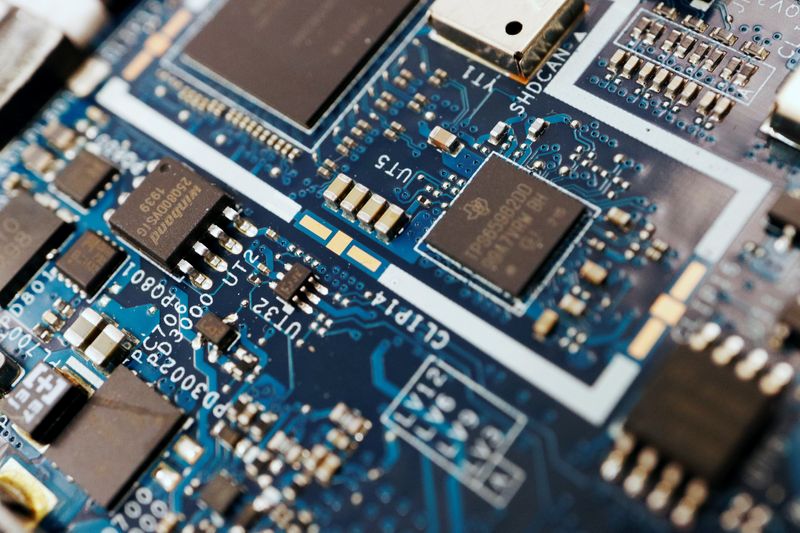(Bloomberg) -- Semiconductor Manufacturing International Corp.'s (HK:0981) net income beat analysts’ estimates after advances in technology helped cushion the impact from US sanctions.
China’s largest chipmaker posted net income of $514.3 million in the second quarter, surpassing the $469.5 million average estimate, the company said in a statement. It reported revenue of $1.9 billion.
SMIC is among a raft of Chinese semiconductor manufacturers contending with steadily tightening US export restrictions as Washington tries to contain Beijing’s technological rise. That’s on top of rapidly crumbling global electronics demand, as consumers leave a pandemic-era boom behind.
In response, homegrown firms have attempted to develop alternatives to American silicon. The Shanghai-based contract chipmaker has succeeded in advancing its production technology two generations this year to 7-nanometers, though industry experts caution that may not be based on the same standards employed by far larger rivals like Taiwan Semiconductor Manufacturing Co.
SMIC said in a separate filing that Tudor Brown, the former president of Arm Ltd., has resigned from the board, confirming an earlier Bloomberg report. Zhao Haijun also resigned as an executive director, but will remain the role as co-CEO, according to the company.
Read more: US Quietly Tightens Grip on Exports of Chipmaking Gear to China
What Bloomberg Intelligence Says
Semiconductor Manufacturing International’s return on equity is on track to hit a new high in 2022 despite disruptions to production and capacity expansions due to stricter US export-licensing requirements and China’s Covid-19 lockdowns. The company’s chip foundries will run at high utilization rates over the next two years amid a rapid increase in local fabless chipmaker numbers and increasing silicon content in consumer appliances and automobiles. Its shift toward higher-margin specialty chips -- less exposed to sanctions risk -- may help to offset soaring depreciation and staff costs.
- Charles Shum, analyst
Click here for the research.
SMIC is at the vanguard of China’s long-term ambition to produce chips sophisticated enough to replace American-designed silicon, which comprise the majority of the country’s annual $155 billion in semiconductor consumption.
It remains a technological leader in a giant domestic industry now gripped by a series of corruption probes, as senior officials frustrated with the nation’s lack of progress in semiconductors begin to hold executives accountable. The outcome of the widening dragnet and its impact on local players remain unclear.
Read more: China Graft Probes Stem From Anger Over Failed Chip Plans
US sanctions have played a central role in curbing the country’s chip ambitions. The Trump administration blacklisted SMIC about two years ago on national security concerns, citing the company’s ties with the Chinese military, an allegation the chipmaker has denied. Washington is now also pressing allies into the effort, so that key suppliers like the Netherlands’ ASML Holding (NASDAQ:ASML) and Japan’s Nikon Corp . (OTC:NINOY) join its technology blockade.
SMIC has said that hurts its ability to develop more sophisticated technologies. The company’s capability is severely curbed by its lack of access for instance to ASML Holding NV’s extreme ultraviolet lithography systems, which are required to make the most advanced chips.
More fundamentally, it remains unclear how worsening demand for electronics, memory and even auto chips will impact SMIC’s business. Investors are growing increasingly skittish the notoriously cyclical industry is hurtling toward a prolonged slump after years of widespread shortages that led to heavy investments in capacity.
Read more: US Pushes for ASML to Stop Selling Chipmaking Gear to China
©2022 Bloomberg L.P.
